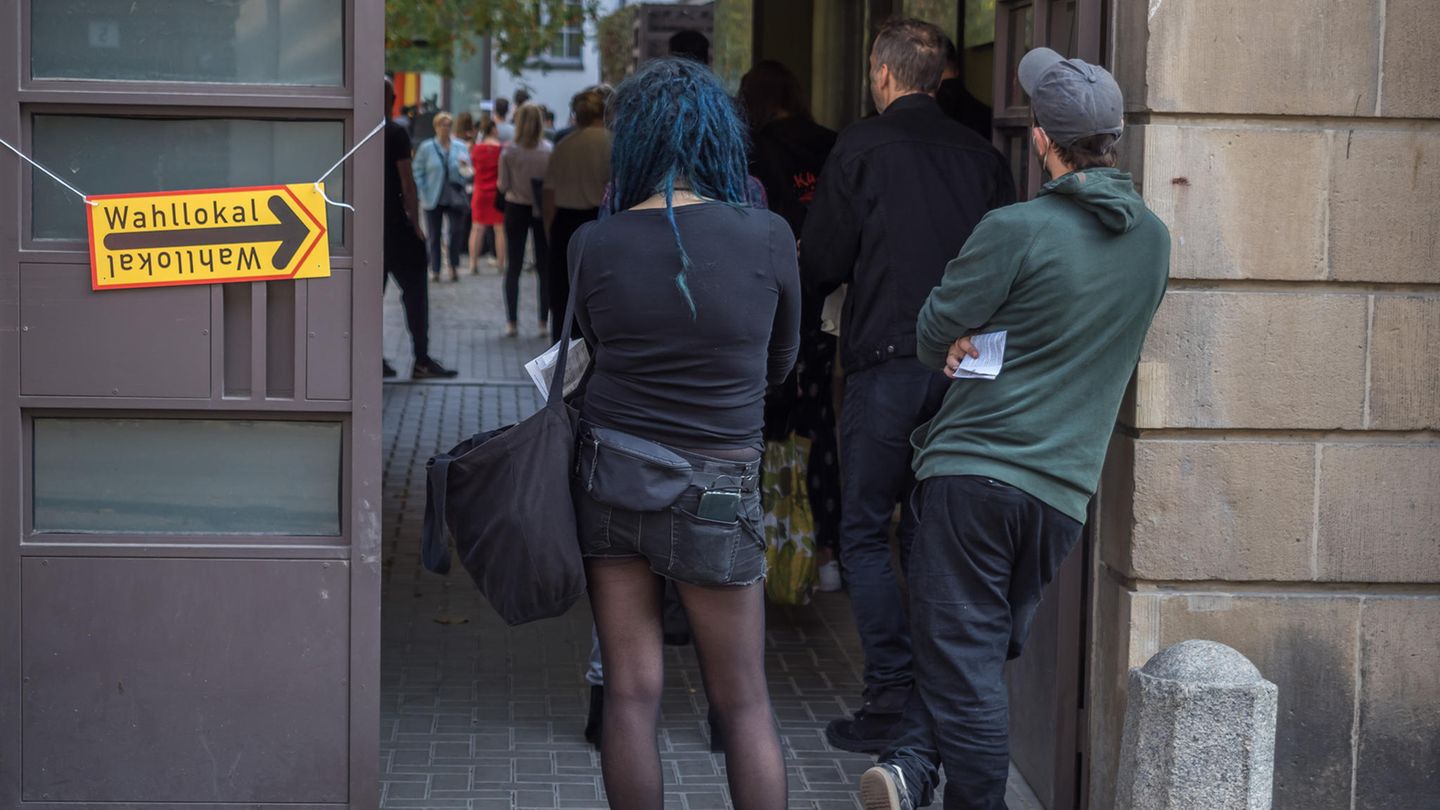A clear decision in Berlin: In a referendum that is unique in Germany, a majority votes for the expropriation of large real estate companies. How does it go from here?
Berliners have spoken out in favor of expropriating large housing groups. 56.4 percent of the voters voted in a referendum on Sunday for it, 39.0 percent rejected the project, as the state election management announced. At the same time, the minimum quorum required for the approval of a quarter of those eligible to vote was achieved. According to the resolution text, the Berlin Senate is now called upon to “initiate all measures” that are necessary for the transfer of real estate into common ownership and to draft a law for this purpose.
However, the vote is not legally binding for politicians. Because the vote was not on a specific bill that would have been passed directly through a successful referendum. Nevertheless, the new Senate and the House of Representatives elected on Sunday will have to deal with the vote.
Specifically, the project, which is so far unique in Germany, concerns companies with more than 3,000 apartments in Berlin, provided that they have an “intention to make a profit”. These are to be socialized, i.e. expropriated against compensation and transferred to an institution under public law. This would affect around 240,000 apartments, around 15 percent of Berlin’s rental housing stock – a legally controversial venture worth billions.
Berlin would break new ground – forecasts: compensation costs in the billions
The “Expropriate Deutsche Wohnen & Co” initiative announced that it would intensively accompany the upcoming coalition negotiations: “We neither accept strategies to hold back nor attempts to intercept. We know all the tricks,” said Kalle Kunkel, a spokesman for the initiative. “We will not give up until the socialization of housing groups has been implemented.”
In Berlin, the level of asking rents in particular has risen sharply in recent years. Even normal wage earners find it difficult to find affordable accommodation in many parts of the city.
The “Deutsche Wohnen & Co expropriate” initiative believes that it will be able to stop the rise in rents and secure affordable rents in the long term with the help of the socialization of apartments. In doing so, she relies on Article 15 of the Basic Law. There it says: “Land, natural resources and means of production can be transferred into common ownership or other forms of public economy for the purpose of socialization through a law that regulates the type and extent of compensation.”
Whether the Berlin Senate will now draft such a law is open and depends not least on the political composition of the new state government. The SPD, CDU, AfD and FDP are – like business – against expropriations. The left is in favor of it without any ifs or buts, the Greens consider such a step “as a last resort” to be possible.
Berlin would be breaking completely new ground. According to forecasts by the Senate, the compensation costs alone would amount to 29 to 36 billion euros. The expropriation initiative expects 7.3 to 13.7 billion euros. It does not want to compensate the real estate company with money, but with bonds, which are then repaid from the rental income over a period of 40 years.
Legal audits of a socialization are getting complicated, there are already reports for and against. In any case, such a project should end up in the Federal Constitutional Court. Berlin last failed there in April with the rent cap, i.e. state-imposed upper limits for rents.
David William is a talented author who has made a name for himself in the world of writing. He is a professional author who writes on a wide range of topics, from general interest to opinion news. David is currently working as a writer at 24 hours worlds where he brings his unique perspective and in-depth research to his articles, making them both informative and engaging.




